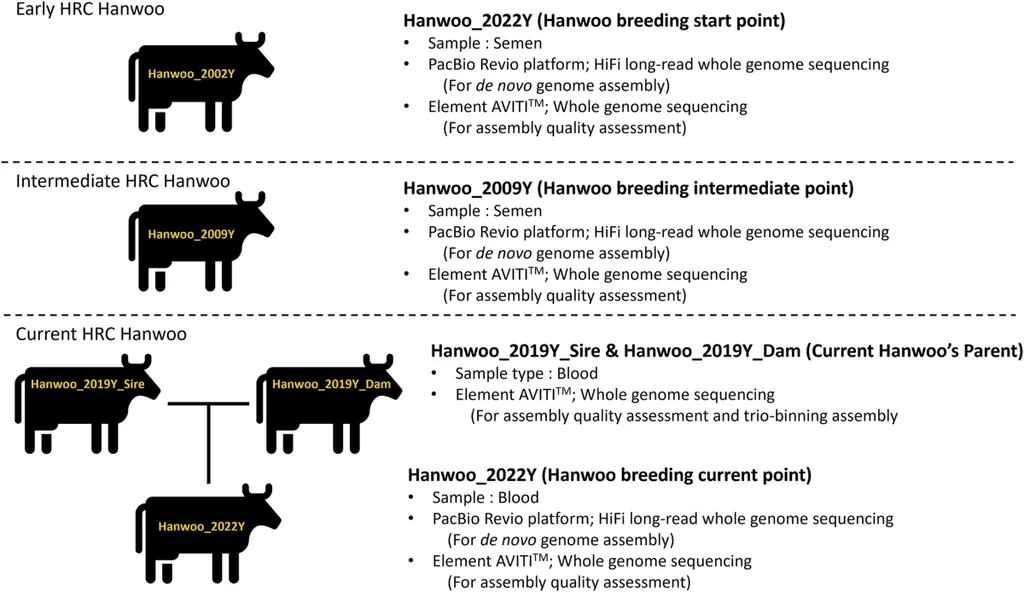In a significant stride towards enhancing the genetic understanding of livestock, researchers have unveiled high-quality phased genome assemblies of Hanwoo cattle, a prized Korean breed renowned for its meat quality. This breakthrough, published in the journal *Scientific Data*, offers a comprehensive look into the genetic landscape of Hanwoo, paving the way for more informed breeding strategies and genetic improvements.
The study, led by Jeong Woen Shin from the Department of Convergent Bioscience and Informatics at Chungnam National University, focused on three Hanwoo individuals from different breeding generations. By generating high-fidelity long-read sequencing data, the team produced four partially phased genome assemblies and two fully phased ones. This detailed genetic mapping is a crucial step in addressing the reduced genetic diversity that Hanwoo cattle have experienced due to selective breeding practices.
One of the most notable aspects of this research is the construction of a graphical pangenome reference. By combining 19 publicly available cattle assemblies with their six new ones, the researchers identified a substantial number of genetic variants—39.3 million single-nucleotide variants (SNVs) and 60.7 thousand structural variants (SVs). Among these, 27.8 thousand SNVs and 26 SVs were uniquely found in the Hanwoo population, highlighting the genetic distinctiveness of this breed.
“This research provides a foundational resource for understanding the genetic diversity and structure of Hanwoo cattle,” said Jeong Woen Shin. “By identifying unique genetic variants, we can better tailor breeding programs to enhance desirable traits and improve overall herd health and productivity.”
The implications for the agriculture sector are profound. With a more detailed genetic map, breeders can make more precise selections, potentially leading to cattle with improved meat quality, disease resistance, and reproductive efficiency. This could translate into significant economic benefits for farmers and the beef industry as a whole.
Moreover, the study’s findings could influence broader agricultural practices. As genetic technologies advance, the ability to pinpoint and manipulate specific genetic traits becomes increasingly valuable. This research not only benefits Hanwoo cattle but also sets a precedent for similar studies in other livestock breeds, fostering a more sustainable and efficient agricultural future.
The detailed genetic insights provided by this study are a testament to the power of modern genomics in agriculture. As Jeong Woen Shin and his team continue to explore the genetic potential of Hanwoo cattle, their work will undoubtedly shape the future of livestock breeding and genetic improvement efforts.

